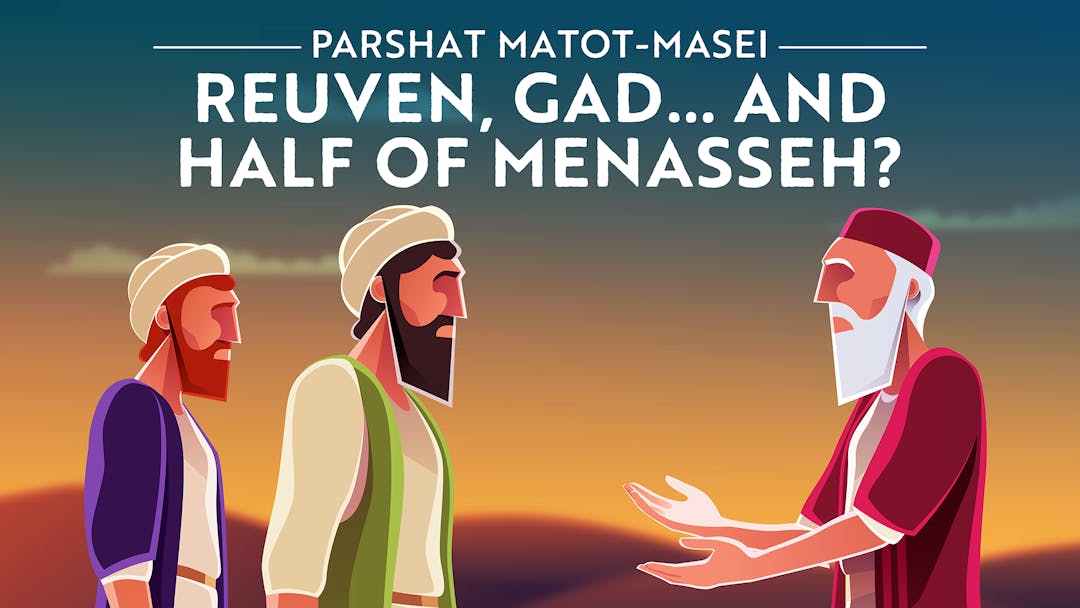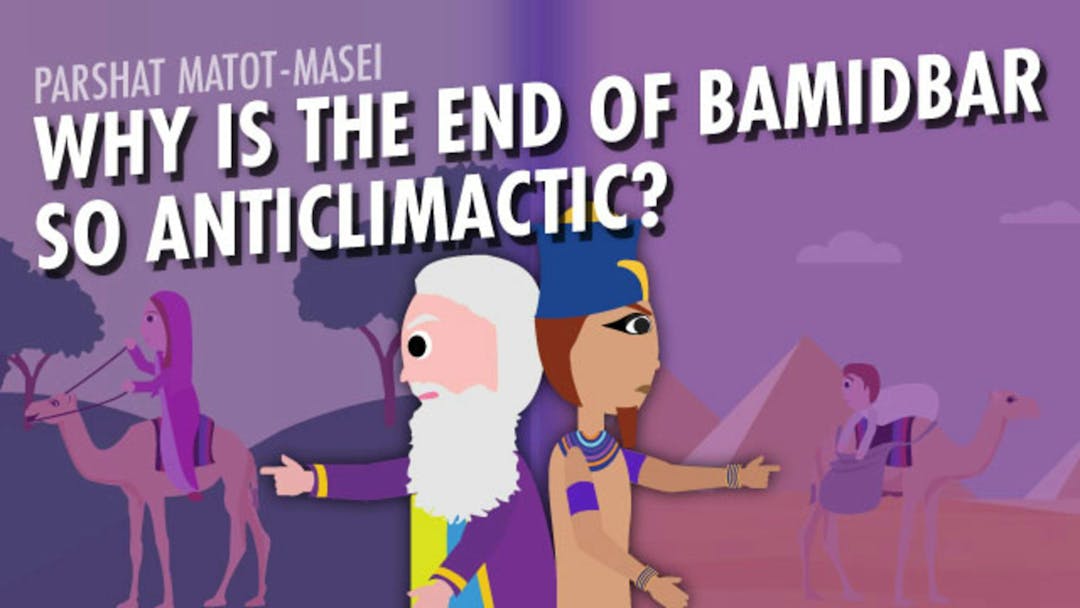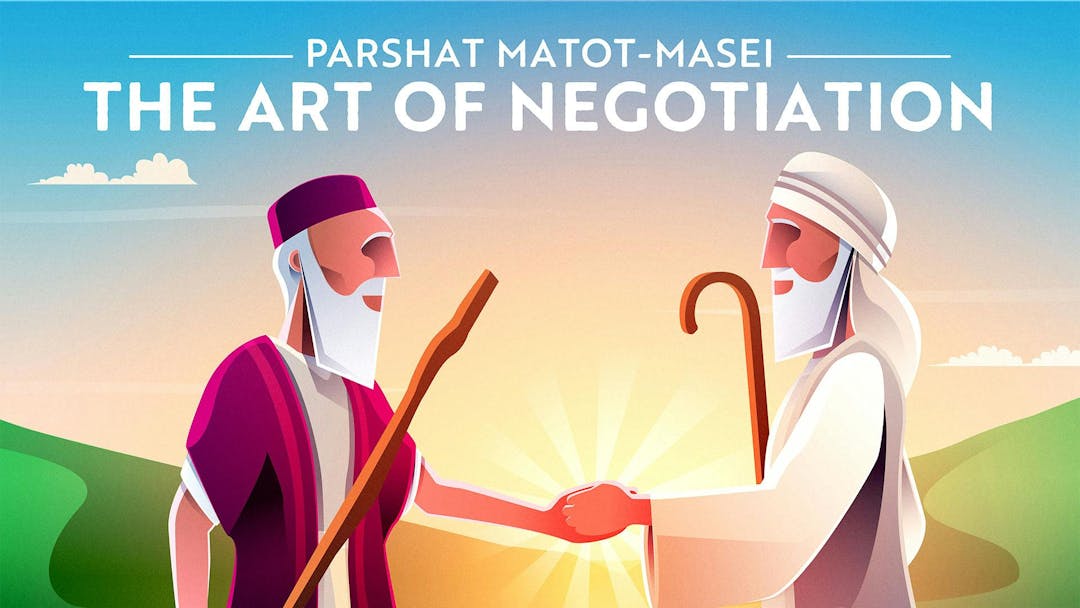The next time we read Matot-Masei is July 11, 2026
Parshat Matot-Masei
Matot-Masei Torah Portion: Numbers 30:2–36:13
The Jewish people battle against the Midianites. Several tribes of Israel request to dwell outside of the Land of Israel. In Parshat Masei, all of the journeys and stops of Israel are recapped, and the boundaries of their future land are given, and the cities of refuge (arei miklat) are designated.
Featured Matot-Masei Video
The Mystery Of The Half Tribe Of Manasseh
Remember when Moses let Reuven, Gad and Menashe settle outside of Israel... What? Menashe didn't ask to live there!? Why did Moses put them there?
Matot-Masei Torah Portion
Matot-Masei Dvar Torah
Parshat Matot-Masei Summary
Matot-Masei Torah Portion: Numbers 30:2–36:13
Parshat Matot-Masei opens with a very technical legal discussion about what happens when someone makes a vow. Under certain circumstances, someone else (a husband or father) can actually come along and annul that vow, can cancel it out — and the laws explain how and when that can happen.
The discussion is short, somewhat dry, and doesn't seem to be of much consequence, at least in our day and age when few people take vows and even fewer husbands and fathers seek to annul them! But if you want to see how this law can assume breathtaking relevance, and you're willing to go on a bit of a journey through text, then take a look at Rabbi Fohrman's course on "Purim: Why Name A Holiday After the Enemy?" The course starts by asking questions about the Purim story itself, but you'll soon see how these laws of vows and annulment from Parshat Matot are relevant — how they are in fact central to the plot of Megillat Esther (the Book of Esther) and to the spiritual significance of the entire holiday of Purim.
Next, we read about a conflict with the nation of Midian. For Midian's part in having tempted the Israelites to sin, back at the end of Parshat Balak — when the Israelites engaged in idolatry and adultery — God instructs the Israelites to exact revenge. (For more on the story of the temptation of the Midianites and the sin of the Israelites — see our video, "Intimacy and Holiness.")
Next we read a fascinating story: about the request of the tribes of Reuven and Gad to settle in the land to the east of the Jordan River (outside of the Promised Land). At first, Moses is upset. He accuses them of recklessly and selfishly abandoning their brothers, leaving them to fight for the Promised Land by themselves. He worries that they will even lead to a repeat of the sin (and tragedy) of the spies from 40 years earlier — when the spies dissuaded the people from entering the land, God got angry, and decreed that the whole nation would die in the wilderness. (For a refresher on the sin of the spies, see "Why God Made The Israelites Wander The Desert For 40 Years," "What Was The Real Sin Of The Spies?" and "The Real Heroism of Caleb and Joshua.")
But a conversation ensues between Moses and the tribes, and they are able to work out their concerns and to find common ground. Reuven and Gad offer to join their brothers in the fight for the land of Canaan — in fact, they offer to stand on the frontlines, and to continue to fight until every one of the other ten tribes is settled in the land.



